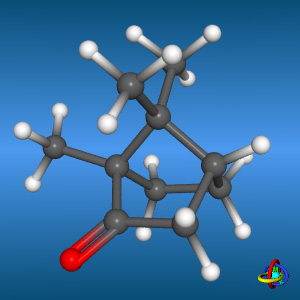A researcher from China has made a significant contribution to the field of organic chemistry, and especially in the study of the use of small particles as catalysts, in synthesis processes that use organo-catalysts. These synthetic processes are used in the preparation of chiral drugs.

A researcher from China has made a significant contribution to the field of organic chemistry, and especially in the study of the use of small particles as catalysts, in synthesis processes that use organo-catalysts. These synthetic processes are used in the preparation of chiral drugs.
In this study, Professor Zhong, a researcher at the Faculty of Mathematical and Physical Sciences at Nanyang Technological University, was able to present for the first time ever an example in which an organocatalyst is able to be recycled (that is, to carry out many reaction cycles without losing its efficiency and catalytic activity) and thus significantly improve the utilization of the reaction and its effectiveness. So far, no researcher has been able to recycle this type of catalyst directly (only one reaction was performed) - a fact that limited the industrial use of such catalysts.
This ability to cycle and carry out multiple cycles of reactions increases the effectiveness of organocatalysts in making the process more efficient, sometimes even to a level not shown before. In addition, the finding leads to the conclusion that it will be possible to use a smaller number of chemicals in this process, so that it will become a more "green" (environmentally friendly) and less toxic process. The findings of this study were recently published in the scientific journal ChemComm.
The research of organo-catalysts, using organic materials (existing in nature, such as proteins and amino acids), is a relatively new approach that began only about ten years ago. The main catalysts used today in such synthesis processes are "metal-ligand catalysts" (such as copper-ligand, palladium, platinum, ruthenium, etc.). However, compared to organo-catalysts, the metallic catalysts are considered less "green" and therefore more toxic.
However, the main problem with the use of organo-catalysts lies in the fact that these processes are not efficient or cheap enough to be used in industry due to the need for a large amount of the catalyst, compared to the metallic catalysts.
The researcher has already applied for a US patent for his innovative process, which could be useful for the preparation of chiral drugs that would be less toxic and that would be obtained in more efficient processes. Another advantage lies in the fact that this process is considered "highly enantioselective" - that is, it can be used for asymmetric synthesis, which is essential in the preparation of drugs containing chiral centers.
The researcher applied for another patent related to his findings regarding the "domino" synthesis, through which the production process of one of today's leading anti-cholesterol drugs in the world could be shortened from eleven synthetic steps to only three for the preparation of its main intermediates. Pharmaceutical companies have already expressed interest in adopting this innovative approach in their drug discovery and manufacturing processes.
